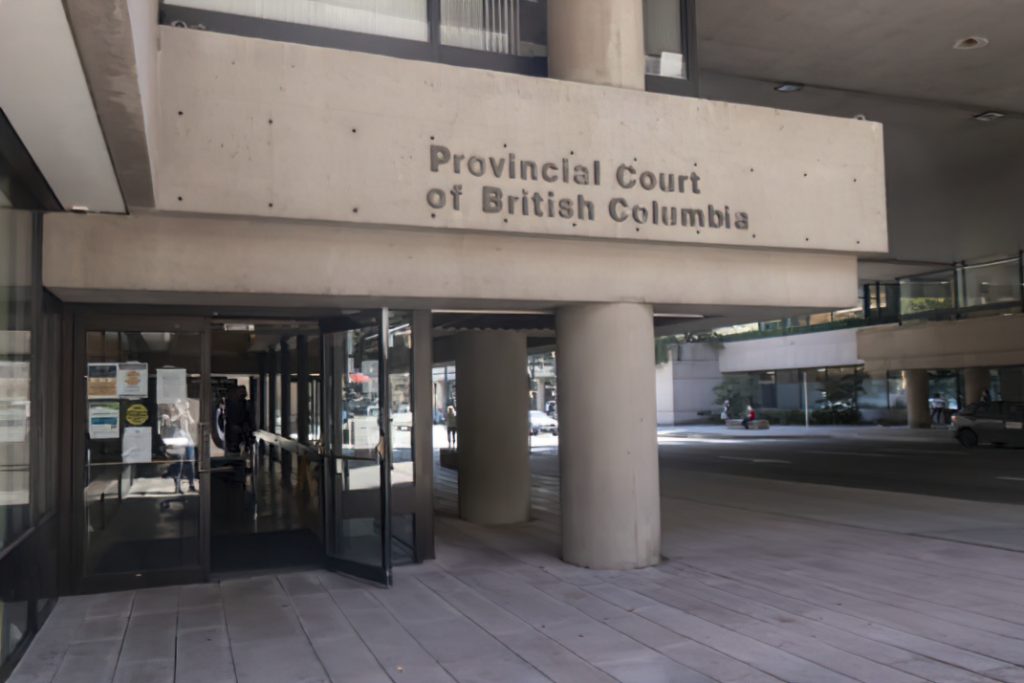Supreme Court ruled British Columbia to stop authorizing industrial activities that breach Treaty promises

By Bruce Lantz
A Supreme Court decision saying a British Columbia First Nation’s Treaty Rights have been largely ignored by industry and government could have far-reaching implications well beyond the provincial borders.
In a recent landmark decision, BC Supreme Court Justice Emily Burke noted that the territory of the Blueberry River First Nation is affected by oil and gas, forestry agriculture, mining and hydroelectric development, notably BC Hydro’s C$16-billion Site C dam. By 2016, more than 110,000 linear kilometres of roads, pipelines, and transmission and seismic lines had been cut across less than 40,000 square kilometres of land, according to a report which found that 73 per cent of the Blueberry traditional territory is within 250 metres of an industrial disturbance. Burke’s ruling said the nation’s Treaty Rights to hunt, fish, trap and gather have been disrupted by the government’s decision to allow industrial development there.
“This is very worrisome,” said Mayor Dale Bumstead, whose Dawson Creek community sits at the heart of the world-class Montney natural gas play, in Blueberry territory.
“I worry for the development of industry. Does this (decision) mean that there is now the potential to restrict that development? Industry is so important to us, the region and the country, this uncertainty creates worry about industry’s role in the future.”
In her ruling, Burke wrote, “the province’s mechanisms for assessing and taking into account cumulative effects are lacking and have contributed to the breach of its obligations under Treaty 8. The evidence shows that the province has not only been remiss in addressing cumulative effects and the impacts of development on treaty rights, but that it has been actively encouraging the aggressive development of the Blueberry Claim Area through specific royalty programs (including for marginal wells) and Jobs Plan policies.
“Blueberry’s knowledge and its ability to successfully hunt, trap, fish and gather depends on the health and relative stability of the environment. If forests are cut, or critical habitat destroyed, it is not as simple as finding another place to hunt,” the ruling reads.
“To get this confirmation from the Court after all the years we have been raising our concerns with the Crown is a very important recognition of our people, our culture and our way of life,” Blueberry Chief Marvin Yahey said in a news release.
The court ruled the province must stop authorizing activities that breach Treaty promises, but Burke noted she’s prepared to suspend this declaration for six months “while the parties expeditiously negotiate changes to the regulatory regime that recognize and respect Treaty Rights.”
Blueberry lawyer Maegen Giltrow said the six-month clause is “a recognition that this is a whole-scale change” and that “the parties have got to start working diligently to find ways to honour the Treaty Rights. If it doesn’t happen within six months, the hard stop is there.”
Mayor Bumstead said much is at stake, as the decision could affect industrial development not only in northeastern BC but also in northern Alberta and wherever industry operates in First Nations territory.
“It will be interesting to see how Blueberry and other First Nations – and industry – respond and react over the next six months. I’m sure industry will have huge conversations about it.”
Officials with the Canadian Association of Petroleum Producers were not available for comment.

The matter that just never seems to be discussed concerning this topic is a straight forward one:
If an indigenous People who have been shaped culturally and even to an extent biologically over the course of millennia to be optimized for survival in a naturally occurring set of environmental conditions are not able to sustain themselves via traditional practices, this means that the environment itself is no longer locally sustainable.
We have had the recent supply chain upsets of the COVID pandemic and the cargo liner that got stuck in the Suez Canal as clear examples of how there are very real vulnerabilities to our globalist economic structure; and it is is easy to project to what the consequences would be of any one of a great number of occurrences that could seriously disrupt that web of resources.
History has shown repeatedly that stability is always relative, and temporary; for example the prevailing theories as to the cause of the Eoropezn Bronze Age collapse in the 12th century BC was due to coinciding drought conditions coupled with a propagating systems collapse.
The weather is changing, and British Columbia is late for a serious seismic adjustment, one that will affect the entire Western Seaboard of North America, along with much of the Pacific Rim.
It is a fairly safe bet that shipping will be somewhat affected, and there will be some disruption of supply chains.
The health of First Nations and of the environment will become extremely relevant to the 4,000,000 plus non-indigenous inhabitants of British Columbia at that point.
That is just one example.
It might also be worth considering that in that (as far as we know INEVITABLE) scenario, the good will or lack thereof on the part of First Nations towards the rest of BC (and Canada, etc) will probably also become very relevant.
This ruling is a very good one, because survival trumps economics.
Period.